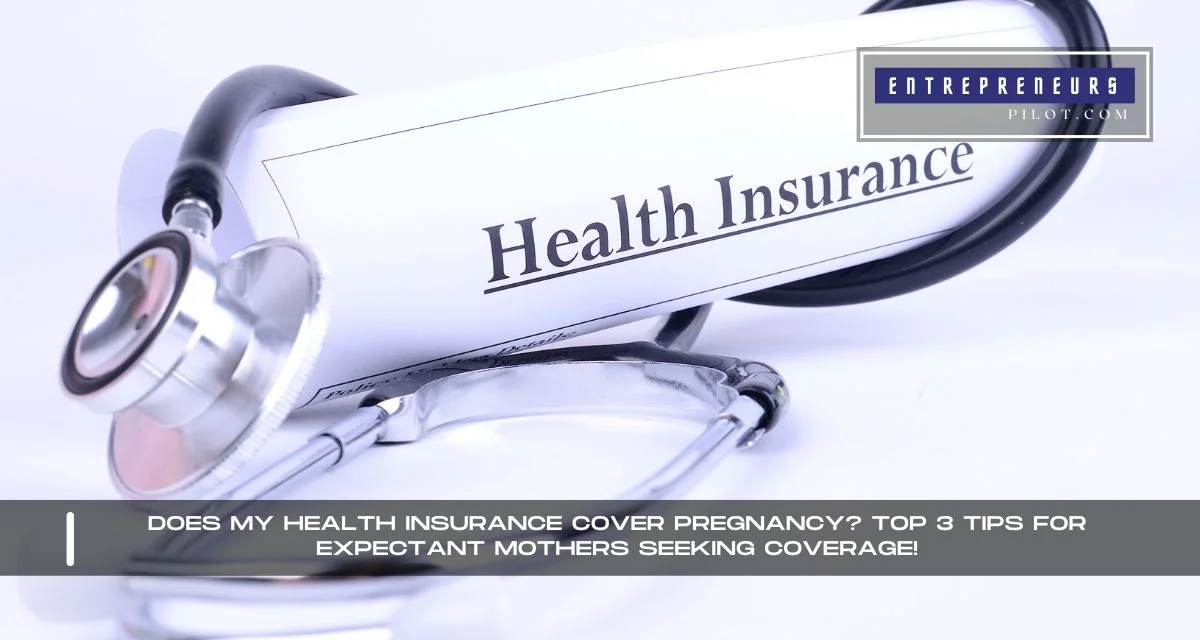Introduction
Embarking on the journey of motherhood brings a mix of emotions, from joy and excitement to the inevitable concerns about the future. One pressing question that often looms over expectant mothers is, “Does my health insurance cover pregnancy?” Understanding your health insurance coverage is crucial, as it ensures both you and your baby receive the best care possible without unexpected financial stress. In this guide, we’ll unravel the mystery of health insurance and pregnancy, offering top tips for expectant mothers seeking comprehensive coverage. Our aim? To provide peace of mind so you can focus on what truly matters – preparing for your new arrival.
Table of Contents
Understanding Pregnancy Coverage in Health Insurance
Navigating the complexities of health insurance can feel overwhelming, especially when you’re expecting. Here’s the good news: most health insurance plans in the U.S. are required to cover pregnancy, childbirth, and newborn care. However, the extent of coverage can vary widely depending on your policy. Some plans might cover all prenatal visits and screenings, while others may have certain limitations or require higher out-of-pocket costs.
Key Aspects to Consider:
- Pre-existing Conditions: Thankfully, under current laws, being pregnant cannot be considered a pre-existing condition, ensuring expectant mothers can get coverage.
- Medicaid and CHIP: For those who qualify, Medicaid and the Children’s Health Insurance Program (CHIP) offer options for low-cost pregnancy care.
- Marketplace Insurance: Health insurance plans bought through the Affordable Care Act’s marketplace must include maternity and newborn care as essential health benefits.
Top 3 Tips for Expectant Mothers Seeking Coverage
1. Review and Understand Your Current Policy
Start by digging into your current health insurance plan. Look for the specifics of what’s covered under maternity care, such as prenatal visits, ultrasounds, lab work, delivery costs, and postnatal care. If your plan documentation doesn’t make this clear, don’t hesitate to call customer service. Knowing exactly what your insurance covers (and what it doesn’t) can help you avoid surprise bills.
- For Expert Financial Insights And Guidance, You Can Visit Our Sister Site – ArabsGeek.com Now!
- Curiosity Piqued? Dive Into the Most Captivating Financial Content by Visiting Our Homepage!
- Unlock Exclusive Business Opportunities! 🚀 Connect with Us Now at our Email: [email protected]!
2. Consider Additional Coverage Options
If you find that your current plan doesn’t offer adequate pregnancy coverage, it might be time to explore other options. This could include switching to a spouse’s plan during open enrollment, looking into marketplace insurance plans, or applying for Medicaid or CHIP if you qualify. Remember, pregnancy itself can be a qualifying life event that allows you to enroll in new coverage outside of the typical open enrollment period.
3. Plan for Out-of-Pocket Costs
Even with good insurance, you may face some out-of-pocket costs. These can include deductibles, copays, and coinsurance for various services. Start saving early and consider setting up a health savings account (HSA) or flexible spending account (FSA) if available. These accounts allow you to use pre-tax dollars to pay for qualifying medical expenses, including those related to pregnancy.
Navigating the Coverage Landscape
Understanding your health insurance options during pregnancy doesn’t have to be a solo journey. Reach out to healthcare providers, insurance advisors, or social workers who can offer guidance tailored to your situation. They can help clarify the fine print of your insurance policy and assist in exploring all available resources to ensure you and your baby have the coverage you need.
Conclusion
Does my health insurance cover pregnancy?” is a critical question that deserves a clear answer. By reviewing your current policy, considering additional coverage options, and planning for out-of-pocket costs, you can navigate the complex world of health insurance with confidence. Remember, the goal is not just to find any coverage, but to secure the coverage that best meets the needs of you and your growing family. With the right preparation and knowledge, you can focus more on the joy of expecting and less on the financial and administrative aspects of pregnancy care.
Frequently Asked Questions
1. Can I enroll in a new health insurance plan if I become pregnant?
Yes, becoming pregnant can qualify you for a Special Enrollment Period, allowing you to enroll in a new health insurance plan outside the usual open enrollment period.
2. What if I don’t have health insurance and I’m pregnant?
If you’re pregnant without health insurance, you may qualify for Medicaid or the Children’s Health Insurance Program (CHIP), which provide low-cost or free pregnancy care to eligible women.
3. Are all pregnancy-related services covered by health insurance?
While most essential pregnancy-related services are covered, the extent of coverage can vary. It’s important to check your specific plan details for what’s included and what might be subject to deductibles or copays.
4. Can my health insurance plan deny coverage for a high-risk pregnancy?
Under current laws, health insurance plans cannot deny coverage for pre-existing conditions, including high-risk pregnancies. However, the level of coverage for specific high-risk pregnancy services can vary, so reviewing your policy is crucial.
5. How can I minimize out-of-pocket costs for pregnancy care?
To minimize out-of-pocket costs, consider choosing in-network providers, understanding your plan’s coverage details, using an HSA or FSA for eligible expenses, and exploring any additional assistance programs for which you may qualify.











